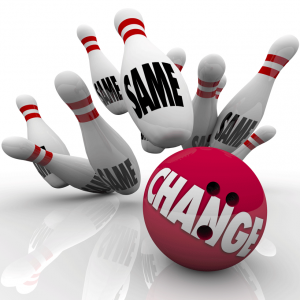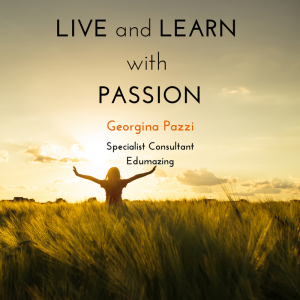 Recently I presented at TEDx Rosalind Park. Within this talk, I shared the government’s vision for Australia to be in the top 5 internationally in limited areas of learning (Reading, Maths and Science) by 2025. It seems in order to be competitive outside of Australia, we have created an education system that is competitive within Australia. One that I believe has created far more complexities and issues for young Australians and the education system as a whole than it has solved.
Recently I presented at TEDx Rosalind Park. Within this talk, I shared the government’s vision for Australia to be in the top 5 internationally in limited areas of learning (Reading, Maths and Science) by 2025. It seems in order to be competitive outside of Australia, we have created an education system that is competitive within Australia. One that I believe has created far more complexities and issues for young Australians and the education system as a whole than it has solved.The high-stakes nature of education here in Australia has only bred competition between schools and within them. It has done little to serve the majority of our students who are not in the top percentiles of the testing regime. The plethora of research that doesn’t support this way of educating our children keeps going unnoticed. Even the OECD reported that we place far too much emphasis on NAPLAN.
We have missed something in education that I believe will make us far more competitive internationally than we realise. I believe to become a nation that achieves higher results in education, we need to create an education culture and system of cooperation and connection within Australia. This would mean to end the high-stakes testing regime and to place greater emphasis on individualised learning and school governed decision making. This will encourage schools and their neighbouring school communities to work together to meet student needs including sharing professional wisdom that supports learners to thrive.
Another huge opportunity this would create is for local communities to take responsibility for education within their cities. It would allow the saying “It takes a village to raise a child” to become a reality. It will also allow communities to make decisions that meet their own individual needs as there are vast differences between communities across Australia especially when comparing high indigenous populations in remote areas to urban cities. We can use the Australian Early Development Census to fund communities in substantial ways and increase student connection with their own community. Interestingly we will also save money as schools share vital resources across their borders and the local government can be adequately funded to provide shared resources for young people to use within the community for learning far beyond what is currently possible.
In a cooperative system, schools will be far more connected, school leaders will feel far greater support for their schools and the school environment will be one that nurtures the whole child. Education is a human process consisting not only of intellectual rigour but the soft skills that are needed for our children to feel successful in their own personal endeavours. The emphasis will be on the journey of learning and how much they have improved across the entire curriculum. If students are in this cooperative system then there is a far higher chance the results of all students will improve. School attendance will most likely improve as students are happy to engage in a curriculum with far more depth, breadth and significance to them. Our students will no longer be measured against a score but rather feel success in their own right. They will learn collectively, solve problems as part of a team culture and independently, learning to value their uniqueness and contribution. Love of self and confidence in their abilities will strengthen and the increased opportunities for creation and innovation will be heightened as they no longer have to rely solely on knowledge and chunk learning into small parts to satisfy testing requirements.
There seems to be a hidden assumption that we have to create competition in order for schools to lift their standards. This is not the case. A competitive culture only creates a divide between schools trying to compete for better results in high-stakes tests and puts unnecessary pressure on principals, teachers and students to perform. Schools are committed to student improvement. Without competition, the school environment will change for the better and the commitment will still remain. Teachers will work collectively rather than competitively, sharing great ideas, creating innovative ways of improving student learning and planning real, relevant and rich learning experiences for all students. This innovation will raise our standards and our education system.
Competition within our country belongs in sport not in education. Interestingly even in sport, the best way for a team to win is for all members of the team to work cooperatively in ‘synergy’. They will not win if each player on the team competes with other players on their own team. In this case, as a nation that works together to improve the education of all young people collectively, we will be a strong force internationally. Finland has already shown how well this works.
Isn’t it time we were brave enough to make the necessary changes to education here in Australia by leading and not following to create a system that embraces the new instead of the competitiveness of the old? Aren’t our children and our future worth it?



